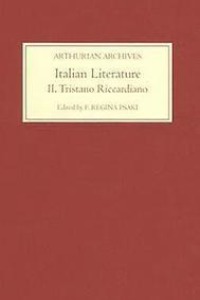
The Four Branches of The Mabinogi
Bok av Anonymous
The Mabinogi, a classic of Welsh literature, is a suite of four stories in Middle Welsh. They were composed, or at least put into their current form-it is hard to say which, because we do not know who the author was-in the late eleventh or early twelfth century, and they survive in two fourteenth-century manuscripts and two thirteenth-century fragments. Set in a primal past, the Mabinogi bridges many genres; it is part pre-Christian myth, part fairytale, part guide to how nobles should act, and part dramatization of political and social issues. First translated in parts by William Owen Pughe (d. 1835), the Four Branches of the Mabinogi did not become widely available in English until the mid nineteenth century, with Lady Charlotte Guest's translation of "the Mabinogion." (The word mabinogion, a plural form that occurs only once in the manuscripts, has been repurposed to refer collectively to the Mabinogi and seven other prose tales.) This new translation is by a Celtic Studies scholar working with a contemporary American playwright; its primary purpose is to make the text accessible and engaging for twenty-first-century readers (and especially, undergraduate students). One significant way in which that philosophy is expressed is in the treatment of Welsh names. For example, the protagonist of the First Branch is named Pwyll, Prince of Dyfed. The University of Wales dictionary, Geiriadur Prifysgol Cymru, lists the following possible meanings for pwyll: "deliberation, consideration, care, caution; discretion, prudence, wisdom, patience, understanding, intelligence, perception, judgment, mind, wit(s), reason, (common) sense, sanity." It is one of the hardest names in the text for North Americans to pronounce, since it contains the notoriously difficult voiceless lateral ll. Calling the character Prince Sage, as this translation does, is a way of addressing both issues. (In general, transparently meaningful names have been rendered in English; all other names have been left in modernized Welsh spelling, with a note on pronunciation when they first occur.) The editor has also included a number of background materials that help place the Mabinogi in the context of medieval Welsh history and culture.







